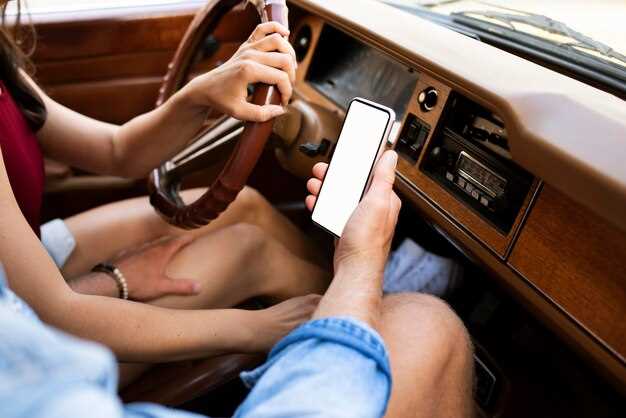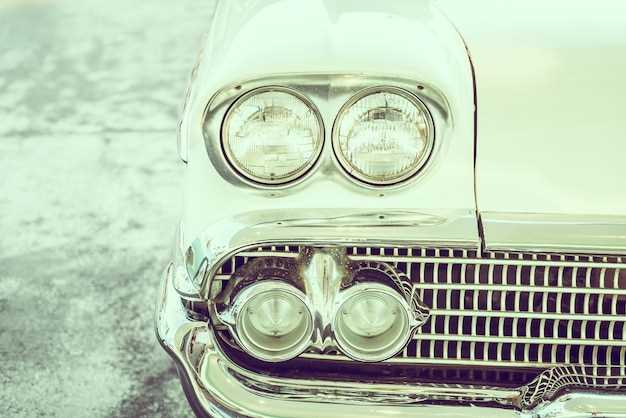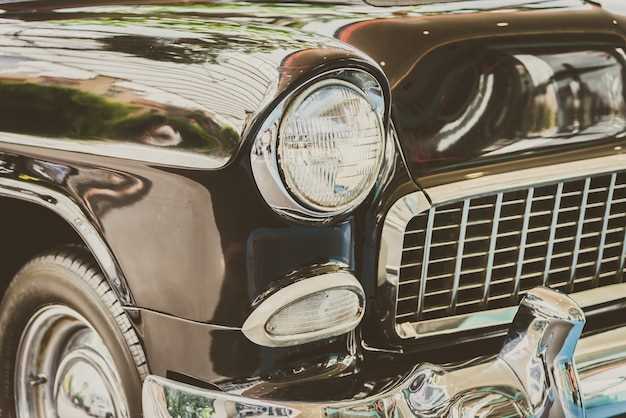Will Autonomous Cars Affect Classic Car Ownership?

The rapid advancement of technology has begun to shape the future of transportation, particularly with the rise of autonomous cars. As self-driving vehicles become more prevalent, they present unique challenges and opportunities for classic car ownership. The relationship between the classic car enthusiast and the evolving automotive landscape is one that warrants careful examination.
Classic cars have long been cherished for their historical significance, craftsmanship, and the joy of driving. However, the emergence of autonomous vehicles raises questions about the long-term viability of classic car ownership. For many, the thrill of driving an iconic model is not just about transportation, but about the connection to a bygone era. As the industry shifts towards automation, it is essential to consider how this transition might affect passionate collectors and everyday enthusiasts.
In a future dominated by efficiency and convenience, the classic car market may experience changes in value, desirability, and even accessibility. While autonomous cars promise to revolutionize the way we think about mobility, their impact on classic car culture could redefine what it means to be an automotive enthusiast. Understanding these dynamics will be crucial for those invested in the world of classic cars as we navigate the new era of transportation.
How Autonomous Vehicles Influence the Market Value of Classic Cars

The emergence of autonomous vehicles has significantly impacted various aspects of the automotive market, including the valuation and desirability of classic cars. As technology advances and more consumers embrace self-driving cars, the perception of classic vehicles is evolving.
One major factor influencing market value is the shift in consumer preferences. As autonomous cars gain popularity, younger generations, who may prioritize innovation and modern features, might show less interest in classic models. This could potentially lead to a decline in demand for classic cars, ultimately lowering their market value.
Conversely, the allure of classic cars as symbols of nostalgia and craftsmanship can also be heightened in an era dominated by technology. As autonomous vehicles become commonplace, classic cars may be viewed as timeless artifacts, attracting enthusiasts and collectors who appreciate their unique design and manual driving experience. This demand can drive up their market value, creating a dichotomy in the classic car market.
Another aspect is the regulatory landscape. As governments begin to implement stricter regulations for modern vehicles, classic cars may enjoy exemptions that preserve their status as collector’s items. This could lead to an increase in value as collectors seek to acquire models that are not subjected to the same restrictions and technological advancements required of contemporary vehicles.
Additionally, the development of autonomous technology may impact the insurance and maintenance costs associated with classic cars. Lower operational costs due to less frequent use and potential liability advantages for owners who selectively use their classic vehicles could enhance the market value, making these cars more appealing to buyers.
In conclusion, the influence of autonomous vehicles on the market value of classic cars is multifaceted, with shifts in consumer preferences, regulatory changes, and cost dynamics playing significant roles. As the automotive landscape continues to evolve, the classic car market must adapt, potentially leading to a unique coexistence of old and new within the industry.
Changing Maintenance and Restoration Practices in the Age of Autonomy
The emergence of autonomous cars is reshaping the landscape of classic car ownership, particularly in terms of maintenance and restoration practices. As we move toward a future dominated by autonomous vehicles, classic car enthusiasts are re-evaluating how they care for their cherished automobiles. The demand for bespoke service and knowledge about non-digital systems is becoming essential.
One significant change is the increased use of technology in diagnostic tools for classic cars. While autonomous vehicles rely heavily on sophisticated software and sensors, classic cars often have simpler mechanical systems that can be managed with traditional techniques. However, contemporary mechanics are incorporating advanced diagnostic methods, allowing owners to identify issues more efficiently and accurately. This hybrid approach ensures that classic cars are maintained with both respect for their heritage and the advantages of modern technology.
The restoration of classic cars is also evolving. As autonomous driving becomes prevalent, the value attributed to vintage automobiles may grow, with a focus on preserving originality and mechanical integrity. Owners are opting for more authentic restoration practices that reflect the original specifications of the vehicles, rather than compromising for modern components. This shift underscores the desire to retain the character of classic cars, while recognizing their uniqueness in an increasingly automated world.
Furthermore, the community surrounding classic cars is adapting to these changes. Online forums and social media groups are integrating discussions about maintenance practices, with a focus on sharing knowledge about preserving classic vehicles amidst the rise of the autonomous era. This collaborative spirit fosters a commitment to keeping these cars in optimal condition, even as the automotive landscape transforms.
In conclusion, while the age of autonomy heralds numerous advancements in vehicle technology, classic car ownership remains rooted in tradition. By embracing new maintenance practices and restoration philosophies, enthusiasts ensure that these cars not only endure but thrive in the future, creating a bridge between the classic and the autonomous.
The Future of Classic Car Culture in a World Dominated by Autonomous Technology

As autonomous vehicles continue to reshape the transport landscape, the future of classic car culture faces both challenges and opportunities. While the rise of self-driving cars promises convenience, efficiency, and reduced road incidents, it also compels enthusiasts to reevaluate their passion for vintage automobiles.
Classic cars represent more than mere transportation; they embody individuality, nostalgia, and artistry. In an environment where the focus shifts towards automation, the appreciation for mechanical craftsmanship and design could either flourish or wane. Enthusiasts might find solace in the fact that classic cars could become increasingly rare, heightening their value as collector’s items and preserving their legacy.
Moreover, the exclusivity of owning and driving a classic car guarantees a unique experience that autonomous vehicles cannot replicate. While self-driving cars provide a sterile, uniform travel experience, classic cars offer a visceral connection to driving–a hands-on experience filled with emotion and personal interaction.
Communities that celebrate classic cars are likely to adapt. Car shows, rallies, and clubs may evolve to attract a new generation interested in vintage designs, blending traditional auto culture with modern technology. Additionally, partnerships between classic car restorers and tech innovators could emerge, integrating advanced features into vintage models without compromising their authenticity.
Despite the potential for increased regulation concerning vehicle safety and emissions, classic cars may see a renaissance as nostalgia and appreciation grow within society. People may invest more time in preserving classic automobiles, ensuring they remain not just relics of history but vital components of automotive culture.
Ultimately, the future of classic car culture in a world dominated by autonomous technology hinges on the balance struck between innovation and tradition. As the automotive landscape continues to evolve, the passion for classic cars may emerge stronger, fueled by a desire to retain the human element in driving.



